Donald Trump trademarked “Central Park”
Donald Trump owns “Central Park.”
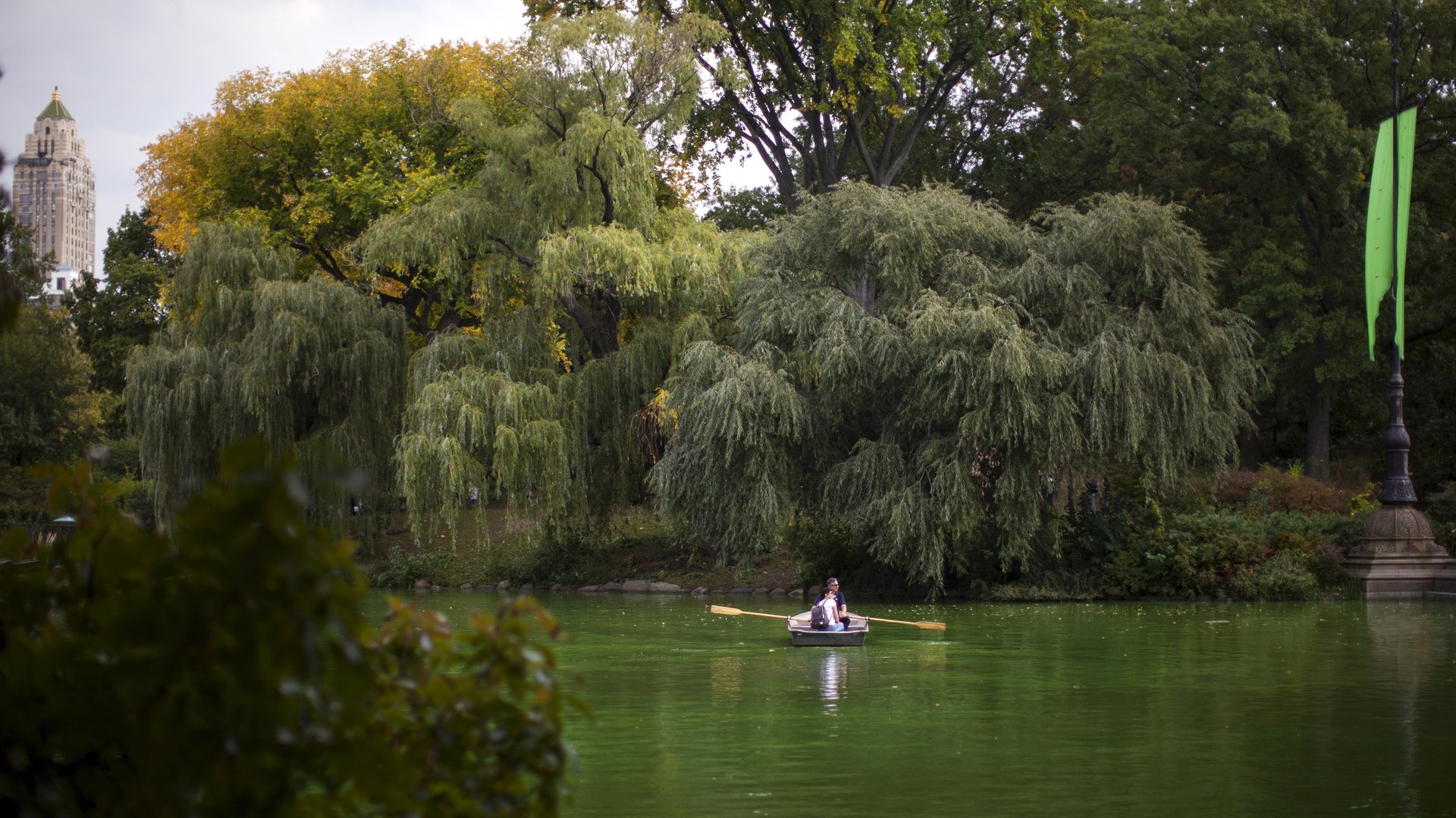

Donald Trump owns “Central Park.”
Not the park itself—not yet at least—but its name, which he trademarked, according to an investigation published Nov. 30 by local news channel NY1.
On Oct. 1, 2008, Trump personally filed the applications to trademark “Central Park,” for use in branding products: from souvenirs like pens, pencils, coffee mugs (pdf, p. 2) to obscure items (pdf, p.1), like filaments for electric lamps, stadium pillows, or soft sculpture wall decorations. The total cost of registering the trademark only cost Trump $1625, for the five classes of use he requested.
Here are some screenshots of the application:
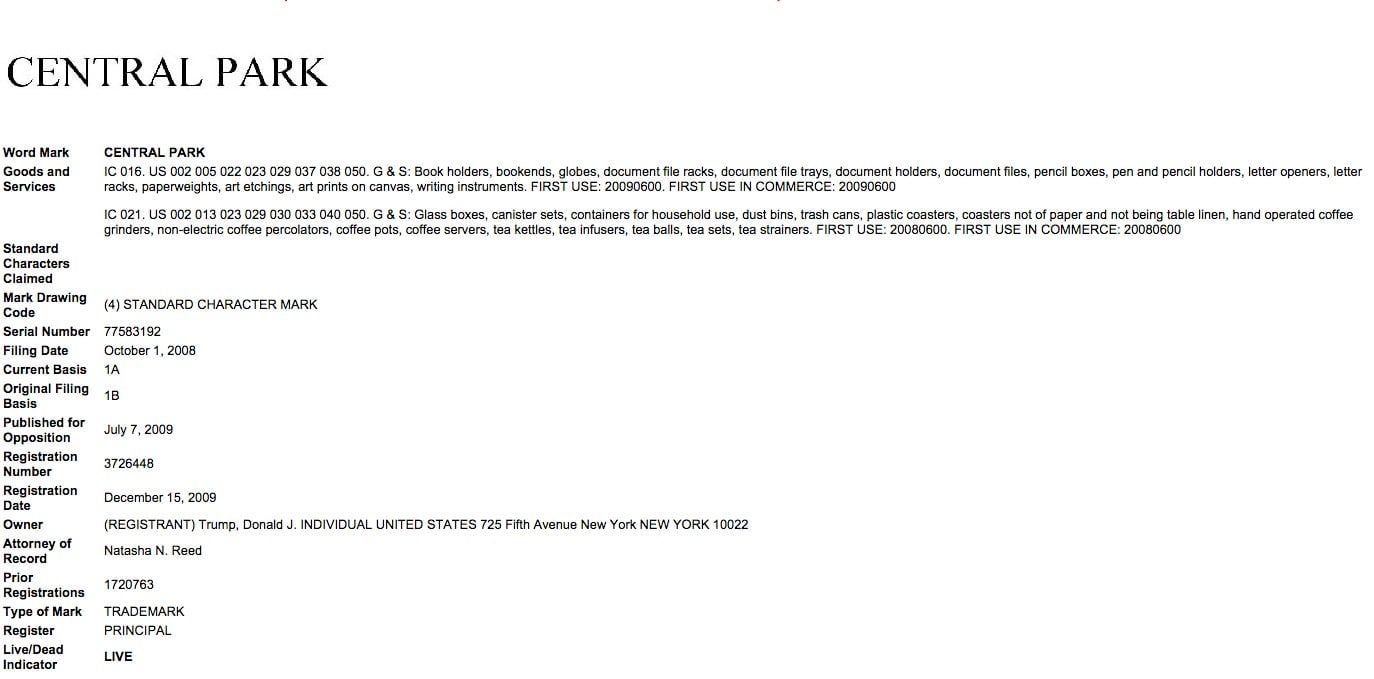
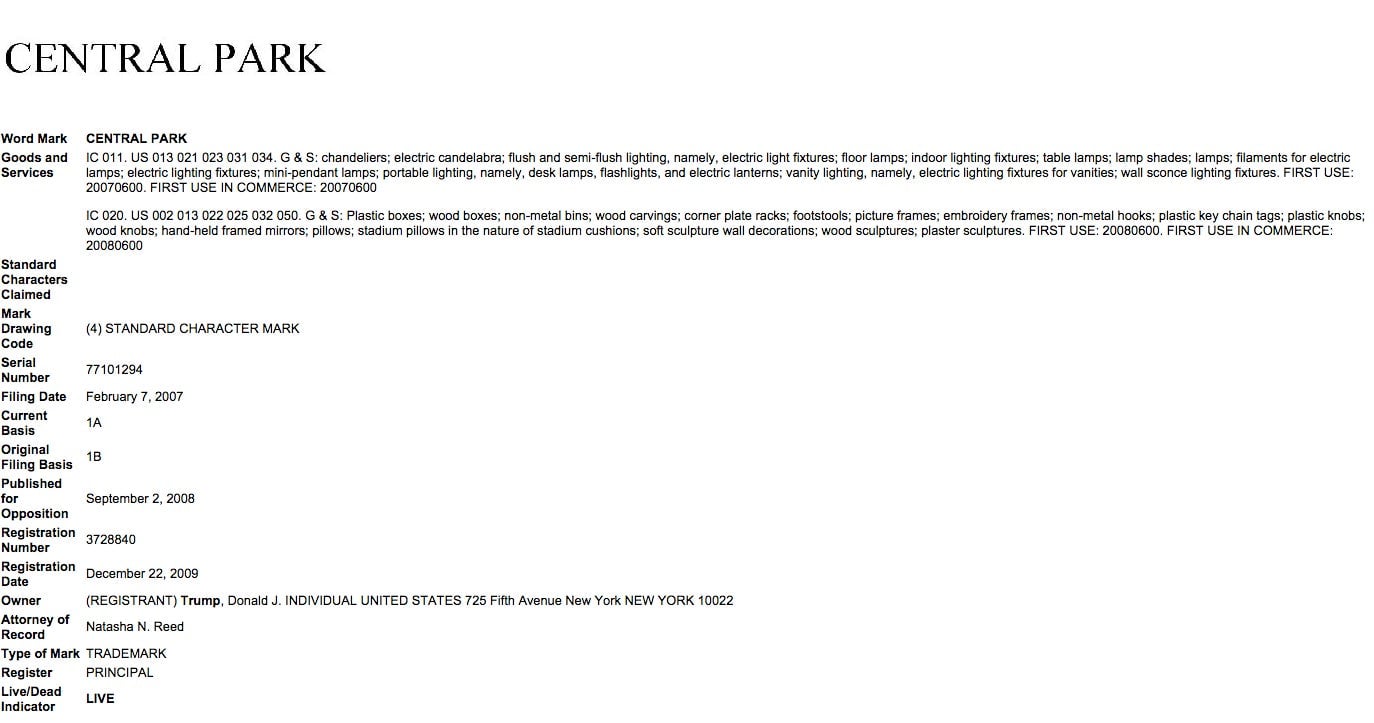
Trump Plaza Associates had already registered “Central Park” for use in the branding of “bus terminal and automobile parking garage services” in 1992.
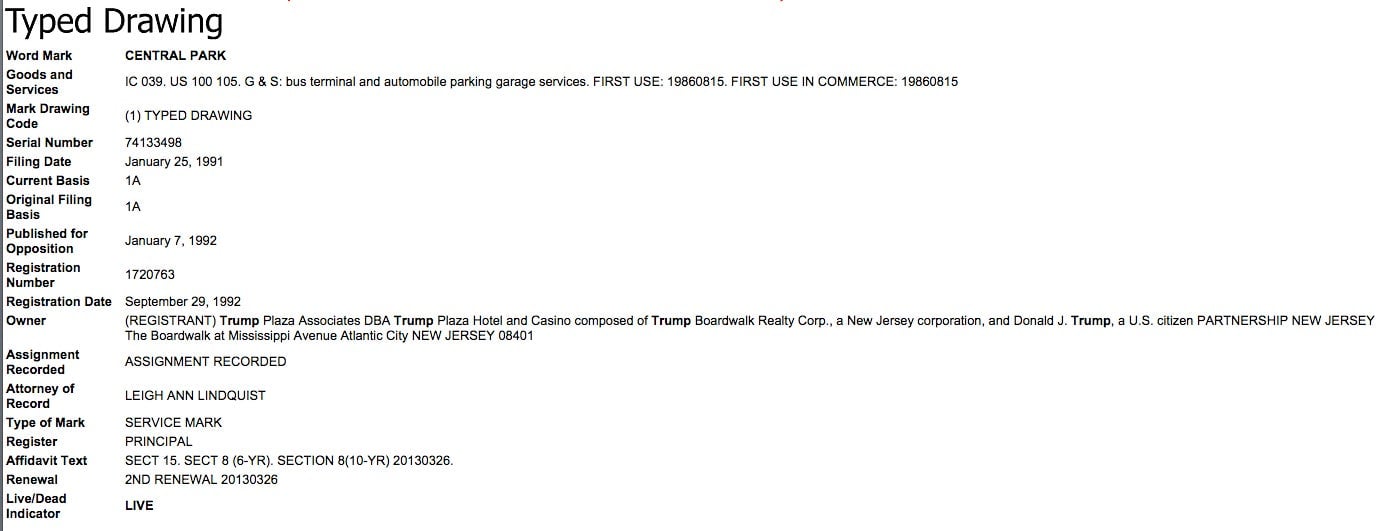
Central Park Conservancy, the company that manages Central Park, has trademarked park-related names, including Central Park Collection and Central Park Pal. But for unknown reasons, it never registered “Central Park” alone, opening the way for others to claim it.
Trump is not the only one. Other businesses own rights to brand “Central Park” perfumes and fragrances, clothes, french fries, even real estate development.
“It’s a messy situation,” Jason M. Drangel, trademark litigation specialist and partner at the law firm Epstein Drangel, told Quartz. ”Anybody can go register a trademark, but just because you register it doesn’t mean you have the right to it,” he explains. A trademark can still be challenged, if there is a will and reason to do so, although the longer the trademark stays uncontested, the harder it becomes to challenge it.
And while registration protects usage rights, policing the usage is still up to the trademark owner. Since ”Central Park” is also a generic name that could be associated with many institutions in the US, suing to keep others from actually using it could be difficult.
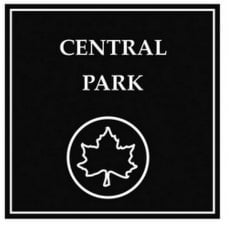
“I think he’s just happy to have the trademark and flaunt it,” Drangel said, adding that it’s unlikely Trump, knowing that his trademark registration stands on shaky grounds, would go after infringements.
Even the City of New York, through its Department of Parks and Recreation, owns some of the rights to “Central Park,” for use on park signs, or “non-luminous, non-mechanical signs made out of laminated plastic.”
A note on the city’s application adds that “no claim is made to the exclusive right to use ‘Central Park’ apart from the mark as shown.”
According to the available documents, Trump’s application was challenged during the registration process in 2008, which lost him the ability to register the trademark for benches. But his claim to the Central Park trademark doesn’t appear to have been further challenged, according to the national Trademark Trial and Appeal Board archive. Quartz has contacted the New York City legal department for confirmation and will update this story with any relevant information.